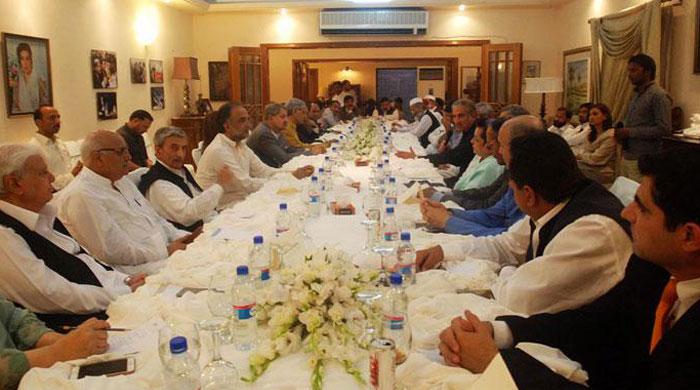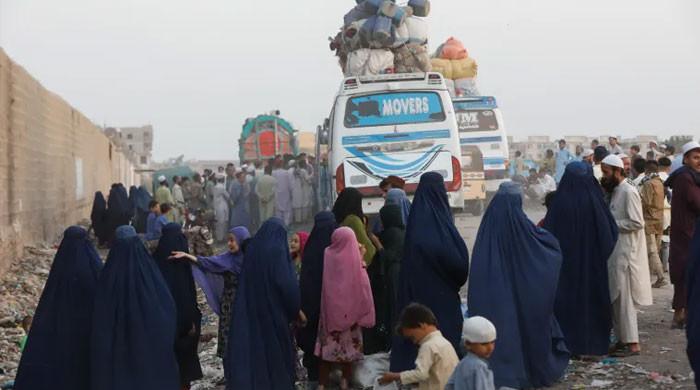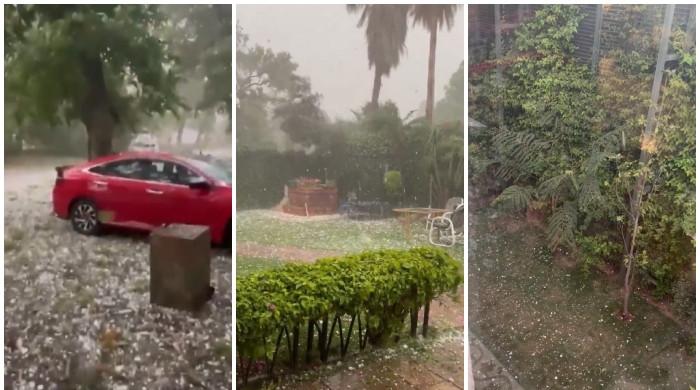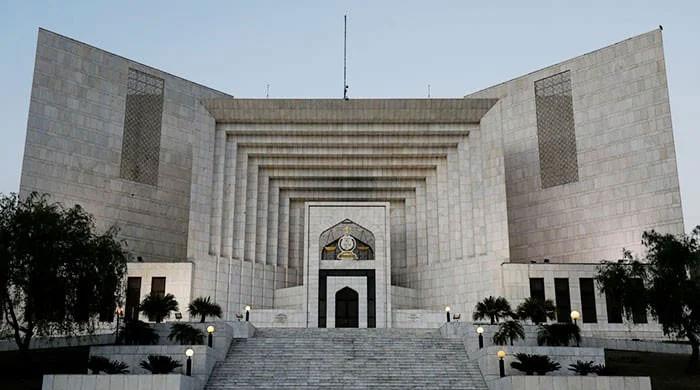The game goes on
Pakistan's politics is caught in a self-defeating bind. The issues raised by the so-called ToR controversy embody deeper currents of hate and revulsion that have become almost...
June 13, 2016

Pakistan's politics is caught in a self-defeating bind. The issues raised by the so-called ToR controversy embody deeper currents of hate and revulsion that have become almost institutionalised.
Acrimony is nothing new to the political landscape. We are among those rare countries that have lost their original geographic shape on account of political antipathy. Bangladesh was the result of, among other mistakes, enemy politics steeped in an ideology of total exclusion and denial of co-existence. Subsequent political episodes were not much different except that the result was not as disastrous as it was in 1971. But bitterness and a constant tug of political war is what we have lived with for decades.
That way the present frenzy in the rivalry of different political forces isn’t unusual except in one crucial respect: it is unfolding at a time in global history when the cost of internal chaos is paid through the nose of defence and foreign policy agendas, and without much recovery time. In other words, the opportunity cost of staying engaged in endless political strife is too high for any country to afford. The national mark-up on time lost in beating one’s opponent is too high for any sensible country to pay.
Signs are already legion that our internal disorder is setting a deadly course for the whole nation; it is sapping critical energies and distracting the focus from the central challenges of the coming years.
At present the entire leadership is consumed by the ToRs for the commission that is to probe the Panama leaks. There is nothing else that comes even close to grabbing the attention of public representatives. Right from the provincial assemblies up to the Senate, time is mostly spent on figuring out what would be the outcome of the deadlock between the government and the opposition. Everything has been coloured by just one issue.
This obsessive focus on the issue is not even related to the good concern of eradicating corruption from the system. The record of all parties in this sector is dismal. It is ironic to see the PPP campaign against corruption at a time when its party leaders are getting into the net of accountability left, right and centre.
No less amazing is to see the MQM take the centre stage on system cleansing: in London their party chief is in the middle of money-laundering proceedings and other serious charges. The PTI’s KP accountability account is as empty as can be: political compromises sit at the heart of its game of survival in the province. It is aided by the Jamaat-e-Islami that has not set any great example of taking a stand on money-related issues as a coalition partner.
The real motive is quite clear: it is power politics. The issue of the Panama leaks has become a handle that the opposition wants to beat the government with – till it drops out of power.
The government’s strategy is also clear: it will not let the Panama leaks become its apparent cause of collapse and shall hold on to the seat of power using every possible means at its disposal. It is an open secret now that the government’s relations with the Army’s present leaders are not stable, which makes the present tussle a triangular fight: no-holds-barred and bare-fisted. The government will battle it out as long as it can and in the coming months would harden its stance.
This endless push and pull has made Pakistan clearly one of the most inward-looking countries in this part of the world. Our region is in a state of flux. New alliances are being made and old agendas are coming up with new vigour and force. India’s turbo-fitted foreign policy is an example of how countries are striving to expand their niche and fit into patterns of global politics that will last for decades to come.
China, Japan, Myanmar, Turkey, Iran, Afghanistan and even many of the Central Asian Republics have turned their attention towards the changing world around them. Their leaders understand that what is happening outside will decisively influence the future of all they may intend to do inside: from their economic overhaul to environment protection, from the education of their children to the health of their women.
Unfortunately, these issues are not even matters of debate inside Pakistan. Here political scheming has expanded to a point of becoming a running scandal with infinity written all over it. The opposition’s assumption is that by extending this scandal it will materially damage the government and therefore expand its political scope and even fortunes. The government is using the same tactic of letting things linger in the hope that the longer it goes on the more futile it becomes. As both inflict upon each other a thousand cuts every day, the country’s formidable establishment gains more space and imagines its hand becoming larger every day in deciding critical matters.
However, it is all a hopeless exercise. The government, with all the mandate at its disposal and in its fourth year in power, cannot function when half the system – the opposition – is totally alienated. What sort of governance can there be other than doling out money for favourite projects on a political basis when major forces are gunning for the prime minister? What debate and national direction can there be on the new world that is born around our borders when the defence minister is engaged in a childish match of repartee with women, toppling all seriousness of the business of the house?
The opposition’s push against the government is no less counter-productive. It cannot do better than what it has already done. While the Panama leaks remains important as an issue, public interest and self-driven anger is hardly visible. Issues that resonate with the public create ripples of automatic protest. In Turkey or Brazil or even in France people come out without anyone pleading and entreating them to participate in party-like organised protests. There has not been a single spontaneous protest on the Panama leaks in Pakistan. If that does not tell the opposition what occupies people’s minds nothing will.
But even if their wish is granted and the government is hung out to dry because of their pressure, this country will not become a model of stability. Reform and national calm is not the result of a press conference. It takes decades to reach that point, and that too with most mainstream forces signing on it.
That sets the context in which the army also has to see the future. Beyond personal likes and dislikes lies the bigger point of how much more time can be spent on attempting futile projects of political engineering. The one project – in Karachi – that began with such pomp and glory is failing badly. Mustafa Kamal and his supporters cannot even walk without the staff of official support under their arms. Imagine managing an entire country that has turbulence brewing in every corner.
There will always be some civilian government or the other at the helm of affairs. Such are the times we live in that military-directed systems have no hope in hell of crossing the first line of survival and legitimacy. It is a mere pretence that there is a strong man with all the solutions to all the problems. Strongmen when put to the test prove little more than straw men. Or they become showmen that the nation cannot wait to get rid of.
This country desperately needs a break from piffling internal battles, from pointless point-scoring and from the dissipation of energies on personal agendas. It has already suffered mountains of trouble for such hollow pursuits. Conspiracy has dominated the arena for long; it is about time sanity is allowed to reclaim its lost space. The guns turned against each other should best be turned against the walls being built to isolate Pakistan.
.—Originally published in The News
The writer is former executive editor of The News and a senior journalist with Geo TV.
Email: [email protected]
Twitter: @TalatHussain12











